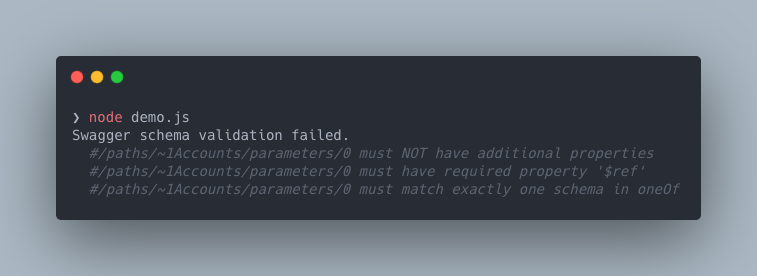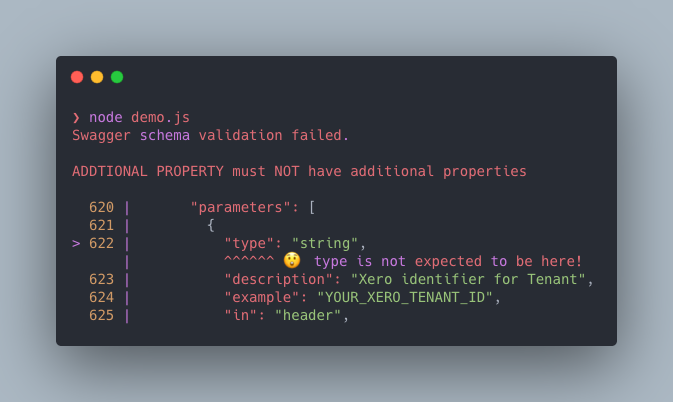
Security News
Oracle Drags Its Feet in the JavaScript Trademark Dispute
Oracle seeks to dismiss fraud claims in the JavaScript trademark dispute, delaying the case and avoiding questions about its right to the name.
trieve-openapi-parser
Advanced tools
Swagger 2.0 and OpenAPI 3.x parser and validator for Node and browsers
$ref pointers, including external files and URLs$ref pointers$ref pointers, giving you a normal JavaScript object that's easy to work with$ref pointers to the same value always resolve to the same object instanceOpenAPIParser.validate(myAPI, (err, api) => {
if (err) {
console.error(err);
} else {
console.log('API name: %s, Version: %s', api.info.title, api.info.version);
}
});
Or use async/await or Promise syntax instead. The following example is the same as above:
try {
let api = await OpenAPIParser.validate(myAPI);
console.log('API name: %s, Version: %s', api.info.title, api.info.version);
} catch (err) {
console.error(err);
}
For more detailed examples, please see the API Documentation
Install using npm:
npm install @readme/openapi-parser
When using Swagger Parser in Node.js apps, you'll probably want to use CommonJS syntax:
const OpenAPIParser = require('@readme/openapi-parser');
When using a transpiler such as Babel or TypeScript, or a bundler such as Webpack or Rollup, you can use ECMAScript modules syntax instead:
import OpenAPIParser from '@readme/openapi-parser';
@apidevtools/swagger-parser@apidevtools/swagger-parser returns schema validation errors as the raw error stack from Ajv. For example:

To reduce the amount of potentially unnecessary noise that these JSON pointer errors provide, @readme/openapi-parser utilizes better-ajv-errors, along with some intelligent reduction logic, to only surface the errors that actually matter.

Additionally with these error reporting differences, this library ships with a validation.colorizeErrors option that will disable colorization within these prettified errors.
Swagger Parser supports recent versions of every major web browser. Older browsers may require Babel and/or polyfills.
To use Swagger Parser in a browser, you'll need to use a bundling tool such as Webpack, Rollup, Parcel, or Browserify. Some bundlers may require a bit of configuration, such as setting browser: true in rollup-plugin-resolve.
Full API documentation is available right here
FAQs
Swagger 2.0 and OpenAPI 3.x parser and validator for Node and browsers
We found that trieve-openapi-parser demonstrated a healthy version release cadence and project activity because the last version was released less than a year ago. It has 0 open source maintainers collaborating on the project.
Did you know?

Socket for GitHub automatically highlights issues in each pull request and monitors the health of all your open source dependencies. Discover the contents of your packages and block harmful activity before you install or update your dependencies.

Security News
Oracle seeks to dismiss fraud claims in the JavaScript trademark dispute, delaying the case and avoiding questions about its right to the name.

Security News
The Linux Foundation is warning open source developers that compliance with global sanctions is mandatory, highlighting legal risks and restrictions on contributions.

Security News
Maven Central now validates Sigstore signatures, making it easier for developers to verify the provenance of Java packages.